

Articles written by me that have been published in print or on sites with stringent approvals. And recognition of my articles/blogs that aren't paid for or otherwise personally influenced.






As a Trailing Spouse to Egypt, this was a book recommended at an Inter-cultural training session that I attended.
I am glad I waited 2 years to read this book (I might have been terrified of the move) although I'm kicking myself for spending money on it, even though I got it at a discounted price on Amazon.
I got carried away by William Dalrymple's (an author I greatly admire) review of it: "Brigid Keenan, is a new comic genius.... very, very funny"
Later in the book, I figured out that he spent time at their house in Damascus, while researching his book From the Holy Mountain.
Why did I hate the book so much?
Except for the last chapter, the author was constantly whining and groaning about the hardships that life had tossed at her. This after choosing to marry her husband of her own free will, knowing the kind of job he did and loved would take him to obtuse corners of the world. It was a fully informed decision that she took. Even spending some days with him, in what she calls a "chicken shed" in Kathmandu before deciding to marry him.
She constantly whines about everything from the help, to the kids, to her husband, to location.... in short, she whines about Everything.
The life of a Diplomatic Trailing Spouse is much easier than that of other Trailing Spouses. Accommodation, household help, office help, everything is put in place before the diplomatic family even arrives at their new location. Brigid's grouse is that some of the other European embassies provide more services to the spouses than her husbands European Commission ambassadors office does.
She promotes herself as a glamorous, successful young London fashion journalist, but later in the book accepts and acknowledges that her children were the worst dressed in their school.
I do not know Brigid personally, but what I read in her this autobiography of hers, made me think of her as a spoiled, over indulged wife who can never find anything positive and good in life.
Granted she had a few scares like the maggots that got under the skin and had to mature and grow and eat their way out, but those kind of experiences were less than you could count on one hand. For the most part, she was preoccupied with how to find whit gloves for a 6 fingered servant in India and wondering why there was no association to put beggars to sleep the way Animal friends does it for animals! At the same time brushing aside her daughters experiences with pedophiles and exposers as casual asides.
Brigid has written about Kashmir's art and crafts and co authored a book on Damascus; which may be worth looking at, but Diplomatic Baggage is not a book you want to buy or gift a friend who is going to be a Trailing Spouse, not unless you want them to cancel all plans and send their spouse to live abroad on their own.
Published on desicritics.org
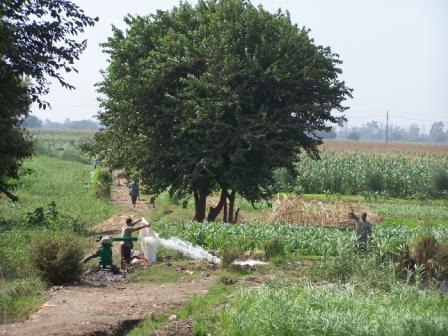 and is very reminiscent of the UP and Punjab fields. The River Nile in the background is of course, unique to Egypt
and is very reminiscent of the UP and Punjab fields. The River Nile in the background is of course, unique to Egypt 
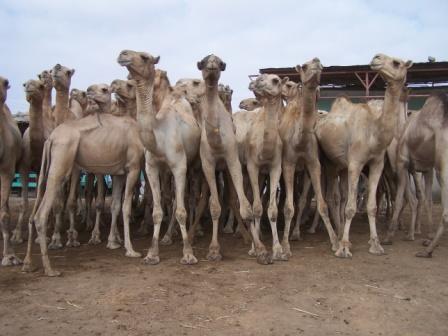

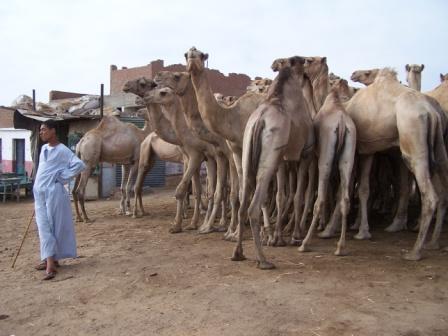


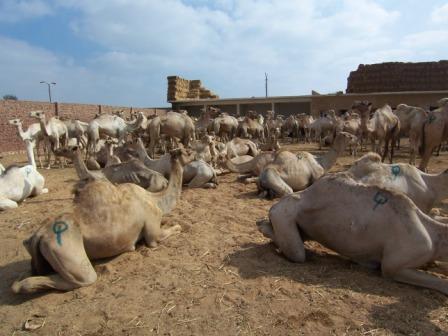

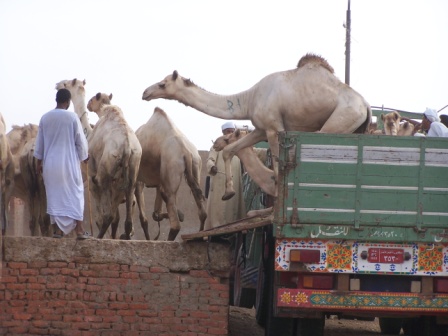
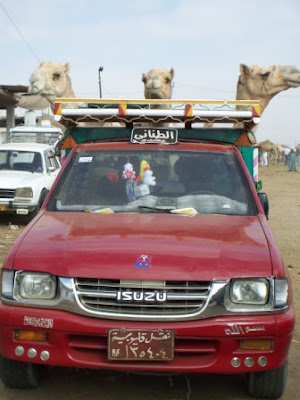

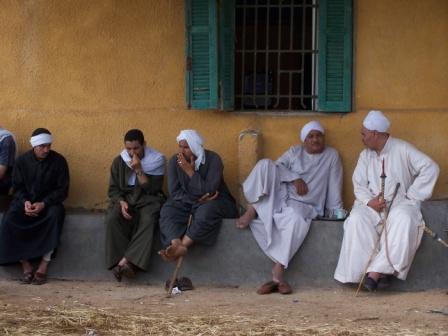



 Carrie Borzillo-Vrenna has been a music and entertainment journalist since the last 20 years and is best known for her books on Nirvana and Kurt Cobain, her sex and relationship advice column “Dr. Love” for the Gene Simmons Tongue magazine and her music related articles in People, Billboard, Spin, RollingStone.com and Alternative Press magazines.
Carrie Borzillo-Vrenna has been a music and entertainment journalist since the last 20 years and is best known for her books on Nirvana and Kurt Cobain, her sex and relationship advice column “Dr. Love” for the Gene Simmons Tongue magazine and her music related articles in People, Billboard, Spin, RollingStone.com and Alternative Press magazines.

There are tons of magazines that are printed in
Magazines that are printed in
The ones that I love and personally recommend (in no particular order) are :
1.
You can view the latest online copy & archives at http://egypttoday.com/
You can subscribe to the magazine online or pick them up individually from a variety of bookstores. It costs 15LE per copy or 135 LE for an annual subscription.
2. Business Today: A sister publication of Egypt Today. This covers the Business developments in
You can view the latest online copy & archives at http://businesstodayegypt.com/
You can subscribe to the magazine online or pick them up individually from a variety of bookstores. It costs 15LE per copy or 135 LE for an annual subscription.
3. Business Monthly: A free magazine brought out by the American Chamber of Commerce in
You can check the archives online at http://www.amcham.org.eg/Publications/BusinessMonthly/Business_Monthly.asp
You can also sign up for your free subscription at http://www.amcham.org.eg/Publications/BusinessMonthly/Subscription/Subscribe.asp. It will be delivered to you free of charge into the comfort of your home.
4. Community Times : A lovely fun magazine to read. Although they have been advertising their website for over a year, it still isn't functional :) But the magazine is very good. It covers a wide variety of subjects that anyone living in
It used to be available on sale for 10LE at the big supermarkets, but now it seems to be restricted to some major bookshops (refer 7 Favorite bookshops in BCA Chronicle – April 2008, page 105) & some restaurants. It is available free of charge at some of the bigger cafes in town. But I would recommend that you subscribe to it to ensure you get your monthly dose.
5. The Croc: Available free of charge at multiple locations around the city including cafes & BCA. It gives you a brief on the events coming up in the month. A nice list of restaurants, cafes & bars with recommendations on what to eat there and little notes about the ambiance at times.
Its tiny- pocket size, so its worth carrying around in your purse for those moments when you are hungry in a different part of town and can't decide where to eat or suddenly find yourself with a free evening & longing for a dose of culture!
6. The Oasis: a free magazine published by the CSA (Community Services Association) in Maadi. The article content isn’t high but it has a lot of ads for services in Maadi that can be extremely helpful, especially to expats. Pick up your free copy at the CSA centre on Road 21.
7. The BCA Chronicle: An excellent resource for expats. Lots of relevant articles to life in


Summer Coolers
Karishma Pais (Kim)
Now that the temperatures are regularly crossing 40C, maybe most of you like me are more interested in consuming cooling liquids and eating light salads.
While the aerated beverages are easy and seem convenient, they are most definitely not the best thing for your family’s health. There are the easy options available like the fresh orange juice sold at Metro (clean & healthy) and the many bottled fruit juices from
Options with a little work involved are milkshakes with Nesquick or Vitrac’s flavored syrups. The almond one is especially yum.
But if you don’t mind putting in a little effort, then there is a vast mouth watering and thirst quenching range of drinks that you can prepare by yourself at home, with ingredients easily available in
Fresh Lime Juice/Lemonade
Squeeze the juice of 5-8 lemons (depending on size) into a pitcher. Discard the seeds. Add sugar and salt to taste. Fill with water. This can be kept chilling in the fridge and consumed over a 24 hour period.
Fresh
Squeeze 2 oranges and strain the juice. Add sugar to taste. Cool in the refrigerator before serving. If you want to drink it really fresh – store the oranges in the refrigerator before squeezing.
Almond Sherbet
Blanch half a kilo of almonds and skin them. Make a thin puree of the nuts in a blender/liquidizer adding a little water if necessary. (You can do this in multiple lots depending on the capacity of your blender)
Make a syrup with quarter kilo sugar (1.25 cups) and one liter water, cooking till it reaches single thread consistency.
Pour the almond puree into the syrup and cook till thickened, taking care to keep stirring.
The syrup should be thick but of pouring consistency.
You can add a teaspoon of rose water at this stage if you like.
Cool and fill into bottles.
It can be refrigerated for 2 weeks.
Serve diluted with water or milk and crushed ice.
Tamarind Juice
Very refreshing in the summers.
Clean 1/4 kg of tamarind, cover it with water (about 1.5 liters) and boil for 5 minutes. Then let it soak in that water for at least 6 hours.
Strain the liquid of any solid pieces. Add 2 cups of sugar.
Bottle & refrigerate.
Dilute with chilled water when you want to drink it.
Home made Karkadih
Rinse ¼ kg dried karkadih. Add one liter water and boil for 5 minutes.
Let it soak in that water for at least 1 hour.
Strain and sweeten with 1 cup sugar.
Bottle and refrigerate.
Dilute with chilled water when you want to drink it.
Lassi
This is a staple in most Indian households during the hot summer months. It cools down the body completely and can be had in sweet or salty versions. There are so many flavors that you can add to the basic lassi. Below are a few versions to get you started.
Whisk together 450ml yoghurt (plain) with 300ml cold water. The consistency should be that of full cream milk. This is your basic lassi.
Flavor with a pinch of ginger or 1 sliced green chilli or cumin powder or a teaspoon of shredded mint or a teaspoon of chopped cilantro. Stir well. You can add salt to taste.
For a sweet version, add sugar to taste (about 1 teaspoon) to the yoghurt and water blend. You can flavor it with a dash of rose essence or orange blossom water.
For a really fancy lassi, garnish the sweet version with a tablespoon of crushed almonds or pistachios.
For a healthy lassi, whisk the mixture with 2 tablespoons of pureed fruit.
Amar al Din- Apricot juice
Get those pressed Apricot sheets from the grocery store (they are normally sold in yellow cellophane paper and are widely available during Ramadan, but even now you can find them)
Cut the Apricot sheets into thin strips and cover with cold water. Soak them until the strips dissolve.
Strain away the solid pieces and sweeten the juice to taste.
Bottle and refrigerate.
Dilute with chilled water when you want to drink it.
Watermelon Cocktail
Cut watermelon into small cubes and deseed.
Sprinkle some lemon juice and sugar on top.
Add a few shredded mint leaves.
Cover and chill.
Serve in cocktail glasses as is or after pureeing the mix.
Garnish with a sprig of mint.
Fresh Juices
There are a wide variety of fruits available in the market. You can prepare fresh juices by pureeing the flesh of these fruits, adding sugar to taste and diluting with water or milk.
Remember : Citrus fruits don’t go very well with milk.
Try out some combinations on your own and maybe next year, you could be writing your recipes for the Oasis J






